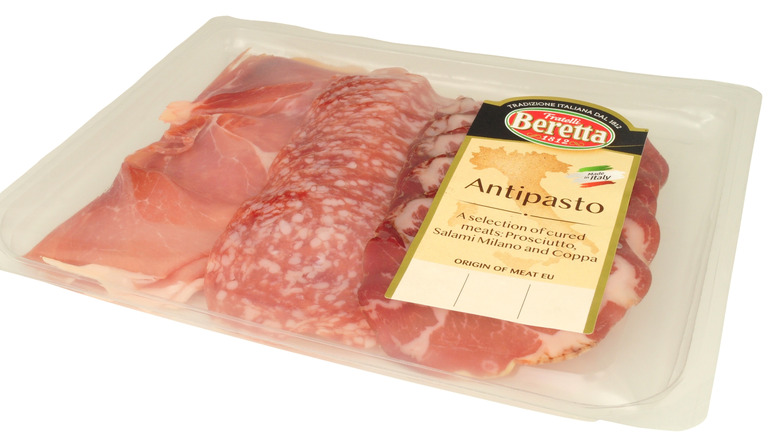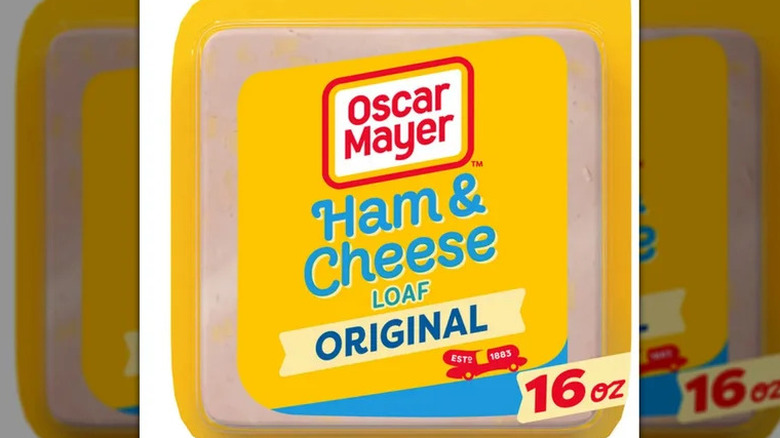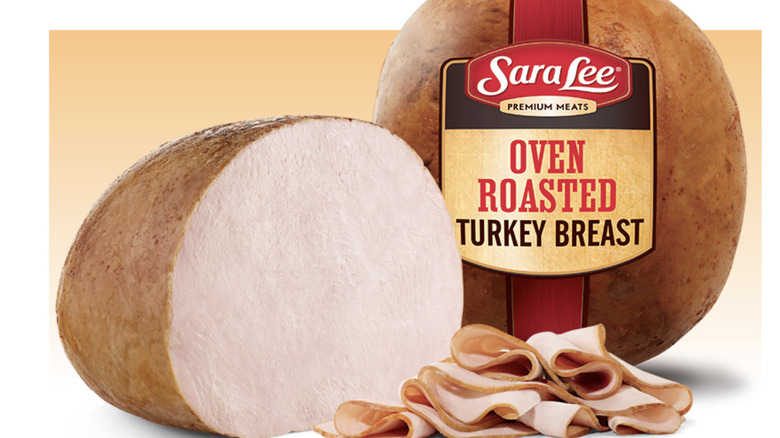Deli Meat Recalls That Affected Millions
We may receive a commission on purchases made from links.
Deli meat is a mundane part of the diet for millions around the U.S. and the world, an inexpensive and easily acquired ingredient to make a simple sandwich. Such luncheon meats are also the result of modern technology and food engineering, as they are produced in sophisticated facilities to maintain uniformity of flavor and texture. But deli meats sometimes head out of the facility when they should not.
Deli meats are so commonly recalled because insidious germs that thrive and replicate in food grow very well in meat, particularly processed meats. Bacteria, like the one that causes salmonella and particularly the one that leads to listeria infections, need moisture to survive, and moist deli meats can offer that environment, passing foodborne illness along to unwitting consumers. The next step is, of course, a recall.
A recall is more than just a company doing damage control; it is of the utmost importance to counteract what could indeed become a public health crisis, and in a speedy manner. Widespread food poisoning is not the only reason for deli meat recalls, but it is definitely an important and all too frequent cause. Sometimes fully-cooked, ready-to-eat, factory-produced sandwich slices hit the market without inspection or because they have been contaminated with a foreign body or allergen. Here are the biggest recalls in deli meat history.
A listeria outbreak led to the end of liverwurst for Boar's Head (2024)
In the middle of the 20th century, liverwurst was a commonplace and cheaply acquired offering at dedicated deli counters and in grocery store packaged meat sections. Technically a sausage because it is made with organ meat and pork fat, it is made by grinding it into a paste that has extruded into wide tubes from which it can be used as a spread or sliced onto a once popular sandwich that people do not eat anymore.
By the 2020s, liverwurst (and its smoked cousin, braunschweiger) were hard to locate. But it had enough of a following that when Boar's Head Provisions, a major prepared meats producer, sent out a tainted batch, the results were devastating. In July 2024, the company withdrew and recalled liverwurst produced at its Jarratt, Virginia, facility between July 11 and July 17 of that year. Boar's Head Strassburger Brand Liverwurst was found to be potentially laced with the listeria bacteria, which can cause foodborne illness. After recalling 207,528 pounds of the stuff, Boar's Head expanded the drive four days later, and would ultimately recover about 2.7 million pounds of liverwurst out of 7.2 million pounds recalled. By the time the outbreak was over, 57 people in 18 states fell ill because of the product, and nine people died. Boar's Head ended production on liverwurst entirely after the listeria crisis.
Thousands of pounds of prosciutto were recalled for lack of inspection (2024)
ConSup North America imports and distributes deli meats from Europe intended for sale in the United States. It still must submit its products for investigation and a sign-off from the Food Safety and Inspection Service. In April 2024, that government agency announced that ConSup North America had failed to do that with a multiple lots of prosciutto, a style of cured ham cut paper-thin, that it had brought into the U.S. between September 2003 and March 2024. Twelve different batches at all had escaped FSIS inspection and made it to stores, leading to a recall.
The affected product was 5.29-ounce packages of prosciutto made under the Stockmeyer brand in Germany. Altogether, the recall encompassed 85,984 pounds of meat, or about 244,000 individual packages. The return rate remained low, however, with only 6,1932 pounds returned. At the time of the recall, no illnesses had been reported to ConSup or the FSIS.
Coppa found in charcuterie boards was tainted with salmonella (2024)
Fratelli Beretta USA makes authentic, traditional, Italian-style deli meats for American markets. It sells sealed plastic trays of assembled charcuterie boards under its own name at some of the biggest grocery store chains in the U.S., including Safeway, Walmart, Publix, Costco, and for private brands, such as Aldi and its Appleton Farms Gourmet Deli Selection line. In January 2024, Fratelli Beretta started a recall of anything and everything it made that included sliced Coppa, after it discovered that the deli meat made from cured pork shoulder was responsible for an outbreak of the bacteria that leads to salmonella infection. About a month later, Fratelli Beretta expanded the recall to cover more potentially tainted Coppa.
By the time the recall was over and the Food and Safety Inspection Service declared the outbreak contained, 104 people in 33 states had gotten sick from eating the affected Coppa, of which 27 patients required hospitalization. In total, Fratelli Beretta got back more than 630,000 pounds of contaminated deli pork.
Kraft's luncheon loaf was recalled because of possible undercooking (2022)
Certain endangered deli meats are in danger of disappearing, notably once top-selling processed, formed, pressed, and sliced industrial deli meats presented in "loaf" form. One such product is Oscar Mayer's Ham and Cheese Loaf, which certainly suffered a hit to reputation and sales following a 2022 recall by its manufacturer. Offering ham and cheese in a convenient, all-in-one slice (it is mostly chopped ham with specks of plasticine, processed cheese made by Oscar Mayer parent company Kraft), Ham and Cheese Loaf is sold in 16-ounce vacuum-sealed packages.
In December 2022, Kraft, on behalf of Oscar Mayer, ordered a recall on one whole day's production run of Ham and Cheese Loaf. The company discovered that the meats prepared and packed on October 10, 2022, had been sent through machinery at a factory in Kirksville, Missouri, which had not been properly cleaned after handling undercooked meat used in the prep of a different product. Germs present in the semi-raw meat could have made its way to the Ham and Cheese Loaf, which inspired Kraft to call back 2,400 pounds of the stuff. It was only able to reacquire 720 pounds of the deli meat.
Continental Glatt Kosher didn't get its meats inspected, thus a recall (2020)
The Food Safety and Inspection Service is a division of the U.S. Department of Agriculture, and it conducts routine and thorough inspections of domestically produced food before it is distributed to retail outlets so as to protect the public against foodborne illness or allergen contamination. Sometimes, a food manufacturer manages to get large quantities of its products out of its processing facilities and into supermarkets, and then the homes of consumers, without that inspection. That is a legal violation, and usually prompts a recall of the unexamined merchandise.
This was the situation at hand in December 2020, when Continental Glatt Kosher Meats, a company that went kosher to serve the dietary needs of adherent Jewish-Americans, announced a recall. Under the brand name of First Choice Kosher Meat and Deli, Continental Glatt Kosher Meats had produced and distributed more than 61,500 pounds of deli meat and poultry products without a federal inspection. The items in question had been made as many as five months earlier, from late June until November 2020, and represented 23 different products, cases of 1-pound chubs of meats intended for deli use, including chicken aufschnitt, chicken pastrami, chicken salami, cooked turkey breast, smoked turkey breast, turkey roll, and turkey pastrami. Luckily, nobody who bought and ate the un-inspected meat reported illness or allergic reactions to Continental Glatt.
A nationwide bologna recall happened in South Africa after thousands got sick (2017)
The minced, preserved luncheon meat called bologna is technically a sausage, and in South Africa it is known as polony. Food conglomerate Tiger Brands runs two meat-making divisions, and over 2017 and 2018, one of them was found to be the source of a massive and widely fatal outbreak of food poisoning. Listeria is a bacterium that can taint meat, and if that contaminated food is eaten, humans can develop symptoms including nausea, diarrhea, blood infection. Food poisoning can change your brain, and it can even be fatal. By the time that the National Department of Health of South Africa determined that the point of entry for listeria was at an Enterprise Food factory in Polokwane, 948 people had become sick — and 180 people had died — after consuming the company's polony.
After issuing a public warning against eating any polony, the National Department of Health recalled all domestically distributed and exported polony. Just after the recall, the statistics continued to climb, with deaths exceeding 204 and infections past 1,000.
B.J.'s recalled several meats over a potential nut contamination (2016)
If contemporary producers are going off of the traditional Venetian or Bolognese recipes when they make mortadella, they will use cured pork, cubes of pork fat, and various spices to make the mild sausage that slices perfectly into sliced meat. There is also a requirement that they use pistachios, which, as a tree nut, is one of the eight most common and potentially dangerous allergens American food companies are legally required to mention the presence of on the product's packaging. In February 2016, B.J.'s Wholesale Club launched a recall of Citterio Mortadella sold in pre-packed service counter bags because its containers lacked that declaration — the grocery chain usually processed nut-free mortadella, and this time it was sent the deli meat that did contain it by mistake.
Adding another potential hazard for accidental nut allergy sufferers: The Citterio Mortadella had been sliced in a facility on machinery which was not properly cleaned after, potentially contaminating the next rounds of cut meats with pistachios. B.J.'s had to recall those deli meats, too, which had been sold throughout seven eastern states.
Listeria in the meat led to a huge recall for Manda Packing Company (2013)
Louisiana-based industrial meat supplier Manda Packing Company prepares deli meats for numerous clients and stores, and often simultaneously or in immediate succession. When it announced a recall in April 2013, the list of affected products included roast beef, ham, turkey, corned beef, pastrami, smoked pork, head cheese, and ham shank sold under its own Manda banner as well as for Four Star, S&W, LA Pride, Leblancs, Thompsons, Christiana, Deli Pride, Chef Master, Scariano, Cajun Rite, Rouses, Diversified, Big Cajun, and Marques. All the meats involved in the recall shared an expiration date of sometime between mid-May and mid-June 2013, all of it created in the same production facility in the same short window of time.
After announcing a more modest recall on April 10, Manda revised and extended the action to take back its meat. Altogether, 468,000 pounds of deli meats were recalled, due to the fact that they had been potentially contaminated with Listeria monocytogenes, the germ that leads to listeriosis, a type of food poisoning. Of that nearly half a million pounds of possibly infected meat, only about 189,000 got back to Manda.
Sandwiches at Walmart were made with possibly listeria-infected deli meats (2010)
One fairly shady thing about Walmart's grocery department: The deli sells a lot of ready to eat, preassembled sandwiches, prepared with ingredients sourced from lots of places besides Walmart. In August 2010, thousands of those convenient deli sandwiches were made with meat provided by Zemco Industries, and so they were subject to a recall when the supplier announced the potential presence of the bacteria that causes listeria in its products.
After a test of the Zemco meats conducted in Georgia tested positive for the germ, Zemco publicly requested the return of the 380,000 pounds of affected sliced meat, used entirely in sandwiches sold at Walmart under the Marketside Grab and Go private label. Tainted meats that could trigger painful and potentially deadly illness included Black Forest ham, hot ham, hard salami, pepperoni, Virginia ham, and Angus roast beef. The contamination occurred sometime between June 18 and July 2, 2010, and were part of sandwiches intended to be sold up until the marked expiration dates, as late as September 10, 2010. Only about half of the recalled meat, about 169,000 pounds, was returned, although no reports of illness were filed.
A Canadian company found listeria in its meat and recalled nearly 200 products (2008)
Early in 2008, routine testing at the North York, Ontario, facility of Canadian meat processor Maple Leaf Foods found evidence of the bacteria that causes listeriosis in some of the company's processed deli meats. By early June, the first of 57 listeria diagnoses was reported, and by the end of the month, the first death related to the consumption of Maple Leaf Foods meat was recorded. By the time the outbreak was over, Maple Leaf had recalled 191 products, and 57 Canadians had tested positive for listeriosis. Of that figure, 22 people died from the foodborne illness.
Listeriosis is significantly more damaging to older adults, and the strain spread by Maple Leaf Foods disproportionately affected that demographic. The hundreds of contaminated products were mostly bulk-produced deli meats sold in institutional-grade sizes, and used to feed patients at long-term health care facilities and in hospitals. About 80% of those affected by the listeria encountered the meat in those environments.
Pilgrim's Pride recalled listeria-laced meats that killed its customers (2002)
Pilgrim's Pride provides chicken and turkey to supermarket service delis, intended to be put on display and used for slicing on demand or in freshly made sandwiches. Sold under various brand names including Wampler Foods, Block & Barrel, Bonos, Golden Acre, and Reliance, all that poultry was cooked, processed, and shipped out of a facility in Franconia, Pennsylvania. From July to September 2002, the Centers for Disease Control received reports of food poisoning from consumers of Pilgrim's Pride deli meats in eight mostly East Coast states. In October 2002, Pilgrim's Pride issued a recall of 295,000 pounds of deli turkey from the Philadelphia metropolitan area. After testing conclusively proved a connection between those who had fallen ill and the Franconia plant, Pilgrim's Pride temporarily shut down the factory and expanded its recall into a nationwide one, asking for the return of 27.4 million pounds of fresh, frozen, and ready-to-eat poultry products.
Cultures obtained from those who cited illness confirmed that they had developed listeriosis, and a total of 46 people in eight states got sick. Tragically, the outbreak killed seven people and resulted in three self-terminating pregnancies.
Sara Lee knowingly sold tainted meat and then recalled it (1998)
Listeriosis, caused by the listeria bacterium, usually presents with stomach and intestinal pain that plays itself out over a few days. Vulnerable populations like babies, older adults, and pregnant people can suffer more pronounced symptoms, including death. From August 1998 until early the following year, 11 state health departments fielded complaints of listeriosis, and all the cases were linked by something the patients ate. The outbreak began at a Sara Lee Corporation controlled Bil Mar Foods facility in Zeeland, Michigan, and two different strains of the listeria bacterium were found, one in several varieties of hot dogs, and the others in two varieties of Sara Lee branded luncheon meat. By December 1998, a recall of more than 15 million pounds of processed meat was in the works, which after a few months grew to 35 million pounds.
Consumption of tainted Sara Lee Deli Meat and Sara Lee Home Roast, along with hot dogs including Ball Park, Grillmaster, and Mr. Turkey, were connected to a total of more than 100 illnesses, 15 deaths, and six miscarriages. A CBS News investigation into the food poisoning scandal uncovered evidence that the plant knowingly distributed fatally contaminated meat, after noting an uptick in listeria figures months before the outbreak and recall. In 2001, a federal court held the Sara Lee Corporation criminally responsible for, fining it the maximum fine the law allows of $200,000.












